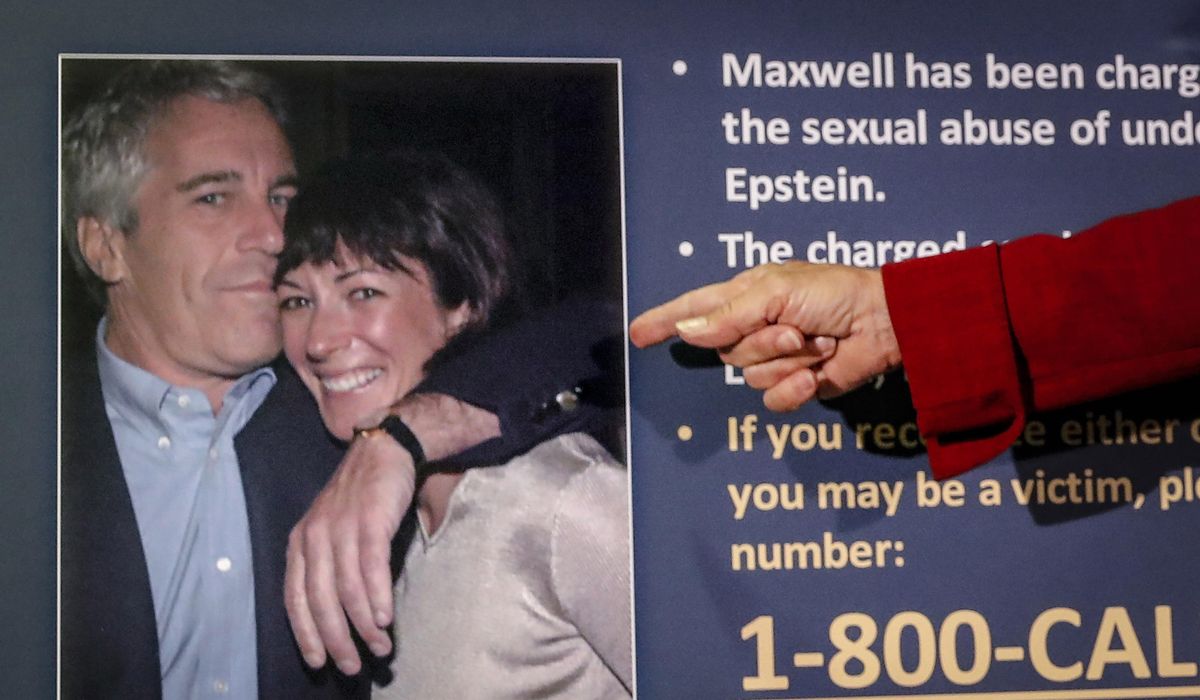ARTICLE AD BOX
President Trump threatened to impose more hefty levies on Chinese goods Monday, signaling tit-for-tat escalation with an economic superpower, while Wall Street investors puzzled over his tariff plan and sent stocks on a roller-coaster ride for a third day.
Mr. Trump canceled a White House press conference with Israeli Prime Minister Benjamin Netanyahu, where he would have faced tough questions about the economic upheaval. He was defiant on social media and in the Oval Office, saying Beijing faced an additional 50% tariff if it didn’t back down from its retaliatory plans by Tuesday.
The president’s threat to raise U.S. tariffs on Chinese goods to 104% fueled upheaval on Wall Street. Online rumors of a pause in reciprocal tariffs caused a brief rebound in the stock market.
“Hundreds of billions of dollars a year they’re making from us on trade, and it shouldn’t be that way,” Mr. Trump said in the Oval Office. “We’re going to have one shot at this, and no other president is going to do this, what I’m doing. And I’ll tell you what, it’s an honor to do it.”
Some countries, including Japan and Bangladesh, opened talks with the Trump administration about reducing their trade barriers after Mr. Trump imposed a blanket 10% tariff on imports and higher levies on dozens of Asian and Latin American trading partners, European allies and even small African countries.
Despite pleading from foreign leaders and business executives, Mr. Trump said he isn’t considering a quick pause on tariffs.
SEE ALSO: Trump won’t pause the launch of new tariffs
“We’re not looking at that,” he told reporters in the Oval Office while sitting beside Mr. Netanyahu. “We have many, many countries that are coming to negotiate deals with us, and they’re going to be fair deals, and in certain cases, they’re going to be paying substantial tariffs.”
Mr. Netanyahu said Israel will move to eliminate the trade deficit with the United States.
“We intend to do it very quickly. We think it’s the right thing to do, and we’re going to also eliminate trade barriers that have been put up unnecessarily,” Mr. Netanyahu said.
He said Israel “can serve as a model for many countries who ought to do the same.”
Officials in the Philippines were considering reducing tariffs on U.S. goods, and India expressed interest in a bilateral deal. Mr. Trump also had a positive call with Vietnam, an alternative supplier to China.
“They’ll be fair deals,” Mr. Trump said.
Even so, the negotiations could be tough.
“Let’s take Vietnam. When they come to us and say, ‘We’ll go to zero tariffs,’ that means nothing to us because it’s the nontariff cheating that matters,” White House trade adviser Peter Navarro told CNBC’s “Squawk Box.”
The Dow Jones Industrial Average took a nosedive upon opening before rebounding into positive territory, apparently because of online rumors about a 90-day tariff pause.
The White House quickly dismissed the rumor as “fake news,” and the Dow tumbled into the red again, closing down nearly 350 points, or just shy of 1%. After flirting with bear market territory, the S&P 500 finished down 0.23%, and the Nasdaq rallied into positive territory, up 0.1%.
The White House tariff formula relies heavily on large U.S. trade imbalances, enraging and confusing allies who thought Mr. Trump’s plan would be directly reciprocal to tariffs and other trade barriers that other nations impose.
“The global economy is being taken down because of bad math,” hedge fund manager and Trump supporter Bill Ackman said on X.
German Economy Minister Robert Habeck called the calculations “nonsense” and urged nations to “act clearly and decisively and prudently, which means realizing that we are in a strong position.”
“America is in a position of weakness,” Mr. Habeck said Monday.
Tariffs are taxes or duties paid by importers on goods from foreign markets.
For years, Mr. Trump has focused on tariffs as a significant tool to give the U.S. leverage in trade deals. He is laser-focused on trade imbalances with other countries, in which the U.S. buys more goods from a trade partner than it sells to that country.
“They send millions of cars in a year — Mercedes-Benz, Volkswagen, BMWs,” Mr. Trump said of Europe. “But we don’t have a car that’s been sold to the European Union or other places.
“It’s not going to be that way,” Mr. Trump said. “It’s not fair. We have a deficit with the European Union of $350 billion, and it’s going to disappear fast.”
The EU was preparing a list of retaliatory tariffs but left the door open to negotiation.
“We have offered zero-for-zero tariffs for industrial goods. Because we’re always ready for a good deal,” European Commission President Ursula von der Leyen said. “But we’re also prepared to respond with countermeasures and protect ourselves against indirect effects through trade diversion.”
Foreign countries don’t pay tariffs directly to the U.S. Treasury. In many cases, U.S. companies will pay the levies, and they might pass along at least some of the costs to consumers through higher prices.
Democrats say Mr. Trump’s plan will result in a massive tax on everyday Americans and cause shocks across the global economy.
“It’s driving us into a recession. So, once again, I urge the president to back off before it’s too late,” said Senate Minority Leader Charles E. Schumer, New York Democrat. “Stop now, or it’s going to get even worse. President Trump, find a way to put down the golf clubs and pick up the papers — the financial papers. Take a real look at what’s going on here.”
Roughly 77% of toys are made in China, and a leading industry group expects prices to rise roughly 35% under the existing tariff level of 54%.
“The toy industry has very slim margins and manufacturers, supply chain partners, and retailers are unable to absorb such a significant tariff,” the Toy Association said. “For the toy industry, a 54% tariff on products made in China will result in a significant amount of the tariff being passed along to the consumer in the form of higher prices at the checkout counter.”
Some investors say Mr. Trump is attempting to gain leverage by playing hardball on the front end to win concessions from other countries.
Still, the near-term chaos was hard to ignore. Global stock markets sank lower Monday.
Stocks in Japan fell by more than 7%, and the Stoxx Europe 600 fell over 4%. Hong Kong’s Hang Seng index dropped 13%, which was the worst trading day since 1997. India’s market plunged, signaling a widespread sell-off, and China’s sovereign wealth arm took steps to backstop its markets amid the turmoil.
As part of his “Liberation Day” tariff package, Mr. Trump imposed a 34% “reciprocal” tariff on Chinese goods on top of a 20% levy. China retaliated immediately with a 34% tariff on U.S. goods.
The Chinese Embassy in Washington posted a video of President Reagan decrying tariffs, in addition to earlier criticism from Beijing.
“We have stressed more than once that pressuring or threatening China is not a right way to engage with us,” Chinese Foreign Ministry spokesman Lin Jian said. “China will firmly safeguard its legitimate rights and interests.”

 3 months ago
67
3 months ago
67








 English (US) ·
English (US) ·